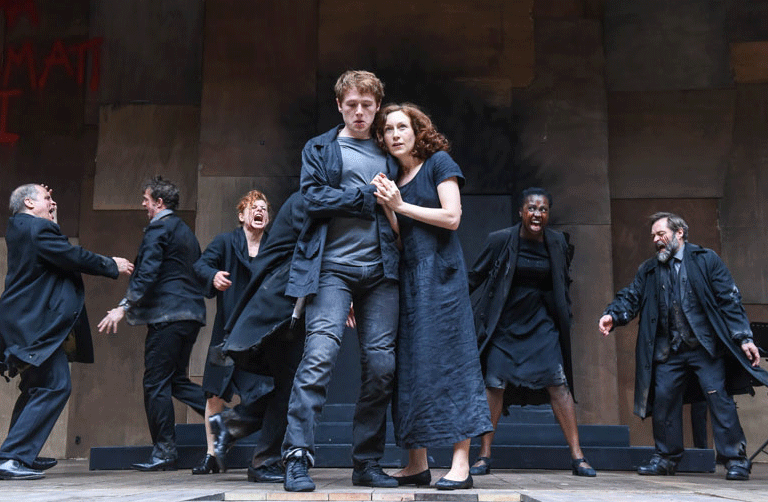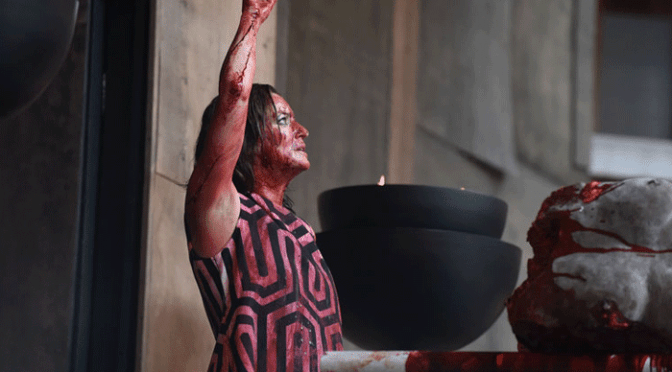It’s hard not to contrast this new production of Aeschylus’ trilogy with that from the Almeida – acclaimed and transferred to the West End. But Rory Mullarkey’s adaptation has its own aims. A more literal translation of the story, miraculously condensed and painfully blunt, it focuses obsessively and powerfully on the theme of justice. For all the Almeida’s contemporary touches, Mullarkey’s version is the riskier. But unfortunately the plays, despite their universal themes and influences that echo especially loudly in Shakespeare’s Globe, come across as downright wacky.
There’s a great start, with a fluid chorus containing excellent actors. Hannah Clark’s costumes, with a nod to the geometric style of pre-classical Greek art, end up giving us a sixties-siren Clytemnestra that Katy Stephens performs marvellously. The modern score, by Mira Calix, will not be to every taste although it’s satisfyingly integral: Cassandra’s role is mostly sung, accompanied by a saxophone, and Naana Agyei-Ampadu won my admiration in the role even before she had to perform in a gold lamé swimsuit. Even a prophetess couldn’t have seen that one coming.

For the second play, there are strong performances from Joel MacCormack and Rosie Hilal, playing Orestes and Electra. Stephens’ return as a Biba-bitch is again strong, with a startling wardrobe malfunction. But director Adele Thomas’s camp touches start to get out of control. Cue the Furies, presented as something out of a horror film – it makes sense, I suppose, but the zombie twitching and grunting, admittedly light hearted, detracts from the powerful language. We’ve already had plenty of gore, the stage literally “blood carpeted”, and a Chamber of Horrors tableau Tussaud’s would be proud of. None of this compares favourably with Mullarkey’s text.
And on to the final play, peopled by “the gods, the ghosts, the monsters, the demons”, a combination that’s clearly too much for any audience’s good. It’s impossible to forget how odd this all is as drama: a lesson about the first ever murder trial, with a Goddess in charge. Athena is, strangely, as wooden as a statue that descends like something out of Spinal Tap. There’s an uneasy humour again… and even a giant golden phallus. Thomas’s embrace of the oddity a modern audience inevitably senses ultimately seems lazy, even if the cast works like mad.
Until 16 October 2015
Photo by Robert Day

